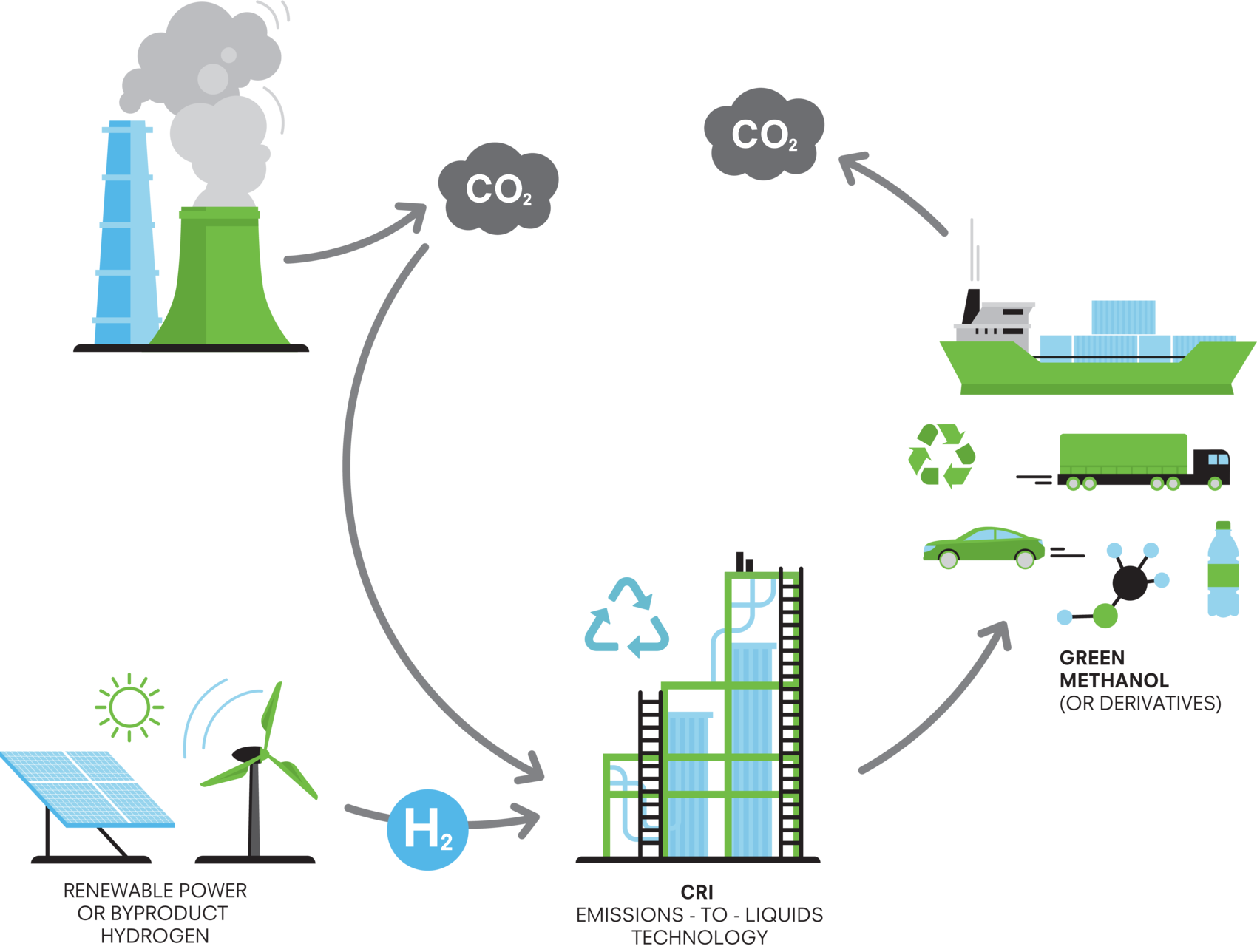Renewable methanol is a low-carbon and net carbon anodyne liquid chemical and fuel made from maintainable biomass, frequently called bio methanol, or from apprehended carbon dioxide and hydrogen produced from renewable electricity. Renewable methanol market demand is on the rise as apart from the increasing number of renewable methanol projects, it is evident that the sale of production for bio methanol or e-methanol is on the rise. With continuing progression in technology and escalated government reinforcement, the potential of individual renewable plants is anticipated to rise.
The global renewable methanol market was estimated to be USD 660.50 million in 2022, and it is anticipated to increase to USD 48,850.56 million with a CAGR of 53.8% from 2023 to 2032.
Advantages of Renewable Methanol
Renewable methanol decreases carbon dioxide emissions by up to 95%, lessens nitrogen oxide emissions by up to 80%, and totally removes sulfur oxide and particulate matter emissions. Its power to decrease emissions assist in the battle against climate change and presents enhancing circumscribed air quality by lessening emissions in road conveyance, marine requisitions, and power generation.
Renewable methanol is made from an assortment of broadly obtainable feedstocks, several of them being by-products of industrial activity. This involves carbon dioxide emissions from industry and power generation together with renewable electricity or biomass resources such as municipal solid leavings, forestry left over, and agricultural waste.
Growth Drivers
One of the prominent drivers for this growth is escalating demand for renewable fuels. With worries about climate change and the requirement to lessen greenhouse gas emissions, there is an escalating engrossment in optional fuels that can assist in lessening carbon emissions. Renewable methanol market trends include it being a disinfecting fuel that can be made from justifiable biomass or apprehended carbon dioxide rendering it an alluring option to traditional fossil fuels.
Another crucial element propelling the growth of the market is government restrictions. Several companies globally are administering policies and regulations to encourage the usage of renewable fuels and lessen greenhouse gas emissions.
CO2 Emissions to Spearhead the Market
Recent technological progressions have sanctioned the apprehension of CO2 from both the aerosphere and industrial depletion streams. For instance, factories such as steel plants and cement, distilleries, and power plants generate notable amounts of CO2 that can be used to make methanol. Many firms have already commenced administering this procedure involving Carbon Recycling International, which utilizes 5600 metric tonnes of CO2 yearly to consolidate 4000 metric tonnes of renewable methanol by reacting it with renewable hydrogen.
Geographic Penetration
Asia Pacific: The demand for renewable methanol is anticipated to escalate in China due to growing usage as a conveyance fuel. The growth is being propelled by prominent players such as Carbon Recycling International and many prominent companies engaging in planned inventiveness to encourage the production of renewable methanol. It is speedily accepting renewable methanol due to the plentiful obtainability of renewable resources such as landfill gas, biomass, and industrial emissions. Funding in the region is anticipated to offer superlative growth opportunities in the market.
Key Players
The competitive key players include Advanced Chemical Technologies, Advent Technologies A/S, BASF SE, Blue Fuel Energy Corporation, Carbon Recycling International, Enerkem, Methanex Corporation, Methanol Holdings (Trinidad) Limited (Proman AG), Nordic Green Aps, OCI N.V., and Södra Skogsägarna.
Recent Developments
In Jan 2021, BioMCN, a Dutch renewable methanol producer, recently completed the construction of its second production facility in the Netherlands, which has a production capacity of 50 kilotons per year. In the US, Carbon Clean Solutions is constructing a renewable methanol plant in California that will use carbon capture technology to convert CO2 emissions from a natural gas power plant into renewable methanol.
In Conclusion
To be licensed as renewable, all feedstock and energy utilized to manufacture the methanol are required to be of renewable energy. The methanol produced by either avenue is chemically similar to methanol produced from fossil fuel sources. In the renewable methanol market, less than 0.2 Mt of renewable methanol is made yearly from only a handful of plants. Those renewable methanol commercial prerequisites and exhibition projects concentrate predominantly on using waste and by-product streams from other industrial procedures, which provide the best finances at present.

